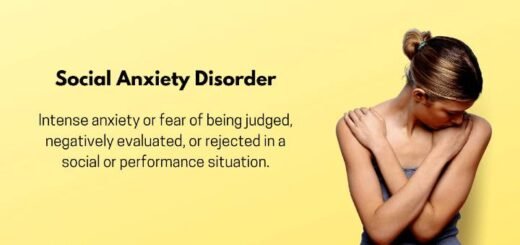Overcoming Social Phobia: Step-by-Step Exposure Techniques
In New Zealand, many individuals grapple with social phobia, a condition that can severely hinder personal and professional growth. “Practical Exposure Techniques for Kiwis: Step-by-Step Approaches to Gradually Confronting Social Situations” offers an essential resource for those seeking effective strategies to overcome these challenges. By implementing gradual exposure techniques, Kiwis can learn to navigate social situations with increased confidence and reduced anxiety.
This guide serves as a beacon for those searching for social phobia solutions, providing actionable steps that are tailored to the New Zealand context. From community events to workplace interactions, the methods discussed empower individuals to confront their fears progressively. For more comprehensive insights and support, visit this helpful resource that outlines various social phobia solutions designed specifically for Kiwis.
Understanding Social Phobia: The Kiwi Perspective
Social phobia, also known as social anxiety disorder, is a condition that affects many Kiwis. It manifests as an intense fear or avoidance of social situations, often leading to distress and impairment in daily life. In New Zealand, where the culture values social interaction and community, individuals with social phobia may find it particularly challenging to engage in everyday activities. Understanding the nuances of social phobia is crucial for effective exposure techniques. For many, acknowledging the issue is the first step toward seeking social phobia solutions that can help them confront their fears gradually.
Recognizing triggers, such as public speaking, attending gatherings, or even casual conversations, is essential. By identifying specific situations that provoke anxiety, Kiwis can create a targeted plan to tackle these fears. This understanding serves as a foundation for the practical exposure techniques that will be discussed in the following sections.
Step 1: Start Small – The Power of Gradual Exposure
The journey to overcoming social phobia begins with small, manageable steps. For Kiwis, this might involve initiating brief interactions in low-pressure environments. Consider starting with simple tasks, such as making small talk with a cashier at your local dairy or greeting a neighbor during a walk. These small victories can boost confidence and reduce anxiety.
Gradual exposure means allowing yourself to feel uncomfortable without forcing immediate change. For instance, if you feel anxious about attending a larger social event, consider first joining a smaller gathering or participating in a community class related to your interests. Take time to acclimate to these situations, focusing on the process rather than the outcome. By gradually increasing your exposure, you can build resilience. Resources like social phobia solutions can provide additional strategies and support tailored for Kiwis.
Step 2: Role-Playing Real-Life Scenarios
Role-playing can be an effective tool for Kiwis to practice social interactions in a controlled environment. This technique allows individuals to rehearse their responses and reduce anxiety before entering real social situations. Gather a trusted friend or family member and simulate different scenarios that you find challenging. For example, practice introducing yourself at a networking event or engaging in conversation at a party.
Role-playing not only helps in refining your conversational skills but also desensitizes you to the anxiety associated with those situations. New Zealanders can utilize this technique in various contexts, such as preparing for job interviews or social functions. Engaging in this practice regularly can make social scenarios feel more familiar and less intimidating. Remember, the goal is to create a safe space for practice, reinforcing the idea that these social interactions can be navigated successfully with time and effort.
Step 3: Mindfulness and Relaxation Techniques
Incorporating mindfulness and relaxation techniques into your daily routine can significantly reduce anxiety levels. For Kiwis grappling with social phobia, practices such as deep breathing, meditation, or yoga can be beneficial. These techniques promote relaxation and help manage the physiological symptoms of anxiety, such as increased heart rate or sweating.
Before entering a social situation, take a few moments to practice deep breathing exercises. Inhale slowly through your nose, hold for a few seconds, and exhale through your mouth. This simple practice can create a sense of calm and prepare you mentally for the upcoming interaction. Additionally, exploring local mindfulness workshops or community yoga classes can provide both practice and support. Resources available at social phobia solutions can also guide you in integrating these techniques into your routine effectively.
Step 4: Setting Realistic Goals for Social Engagement
Setting realistic and achievable goals is crucial for Kiwis dealing with social phobia. Instead of overwhelming yourself with the idea of attending a large event, break it down into smaller, attainable objectives. For example, aim to attend a gathering for just 30 minutes or seek out one-on-one interactions instead of group settings.
Document your progress in a journal to track your experiences and emotions. Reflecting on these entries can help you recognize patterns and celebrate small victories, reinforcing the notion that progress is being made. Engaging with local support groups or online communities can also provide encouragement and accountability. Utilizing social phobia solutions can assist in setting these goals and staying motivated through the process.
Step 5: Leveraging Support Networks
Connecting with others who understand your experience can be incredibly beneficial. In New Zealand, consider reaching out to local support groups or online forums where you can share your feelings and challenges related to social phobia. These networks offer a safe space for discussion and can provide valuable insights and coping strategies.
Invite a supportive friend or family member to accompany you to social events. Having someone familiar by your side can lessen anxiety and provide immediate support if you feel overwhelmed. Consider discussing your goals with them so they can help encourage you to step outside of your comfort zone. Remember, you are not alone in this journey, and resources like social phobia solutions can connect you with others facing similar challenges.
Step 6: Reflecting on Experiences and Adjusting Strategies
After engaging in social situations, take the time to reflect on your experiences. What went well? What aspects triggered anxiety? Recognizing these elements can help you adjust your strategies moving forward. For Kiwis, it’s essential to view each social engagement as a learning opportunity rather than a measure of success or failure.
Consider discussing your reflections with a trusted friend or a mental health professional. They can provide different perspectives and help you identify areas for improvement. By continually refining your approach, you can develop a personalized strategy that aligns with your comfort level and progress. Utilizing resources from social phobia solutions can further enhance your understanding and application of these techniques.
Celebrating Progress: Embracing Social Interaction
Embracing social interaction is a significant milestone in overcoming social phobia. As you gradually confront your fears, it’s essential to celebrate your achievements, no matter how small they may seem. Acknowledging progress fosters a positive mindset and encourages you to continue pushing your boundaries.
Engage in activities that excite you and put you in social settings that align with your interests. Whether it’s joining a local sports team, participating in community events, or attending workshops, these experiences can enrich your life while providing opportunities for social engagement. Remember, progress takes time, and utilizing social phobia solutions can guide you toward building a fulfilling social life in New Zealand.
FAQs
What are practical exposure techniques for confronting social situations?
Practical exposure techniques are structured methods designed to help individuals gradually face and engage with social situations that may trigger anxiety or discomfort. These techniques focus on building confidence and reducing avoidance behaviors, which is essential for overcoming social phobia solutions.
How can I start using exposure techniques in my daily life?
Begin by identifying specific social situations that cause you anxiety. Start with less intimidating scenarios and gradually increase the difficulty. For example, you might start by making small talk with a cashier before progressing to attending a social gathering. This gradual approach is key to effective social phobia solutions.
Are exposure techniques safe for everyone?
Generally, exposure techniques are safe for most individuals, but it’s essential to tailor them to your comfort level. If you have extreme anxiety or a history of trauma, consider consulting a mental health professional before starting these techniques. They can help design a plan that aligns with your needs and goals in addressing social phobia solutions.
How long does it take to see results from exposure techniques?
The time it takes to see results can vary widely among individuals. Some may notice improvements after a few sessions, while others might take longer to feel comfortable in social situations. Consistency and patience are crucial, as regular practice can significantly enhance the effectiveness of social phobia solutions.
Can I use exposure techniques for specific social situations, like public speaking?
Absolutely! Exposure techniques can be tailored to specific scenarios, including public speaking. You can start by practicing in front of a mirror, then progress to speaking in front of friends or family, and eventually move on to larger audiences. This step-by-step approach is highly effective in addressing social phobia solutions related to public speaking.
What should I do if I feel overwhelmed during exposure exercises?
If you start feeling overwhelmed, it’s important to take a step back. Practice grounding techniques, such as deep breathing, and remind yourself that it’s okay to take things slowly. You can always return to a less challenging exposure before gradually working your way back up. This flexibility is vital in managing social phobia solutions.
Can I combine exposure techniques with other therapies for better results?
Yes, combining exposure techniques with other therapies, such as cognitive-behavioral therapy (CBT) or mindfulness practices, can enhance your overall progress. Many find that integrating various approaches provides a more holistic strategy for addressing social anxiety and improving confidence in social situations.
References
- Social Anxiety New Zealand – A comprehensive resource for individuals dealing with social anxiety, offering support, information, and practical strategies for confronting social situations.
- Verywell Mind: Social Anxiety Disorder – An informative guide that discusses social anxiety disorder, its symptoms, and step-by-step techniques to gradually face social fears.
- Psychology Today: Social Anxiety – An overview of social anxiety and effective exposure techniques, including practical advice for overcoming fear in social settings.
- Anxiety and Depression Association of America (ADAA): Social Anxiety Disorder – Provides insights into social anxiety, offering resources and therapeutic techniques to help individuals manage and confront their fears.
- National Institutes of Health: Practical Exposure Techniques for Social Anxiety – A research article exploring evidence-based exposure techniques specifically aimed at helping individuals with social anxiety.




